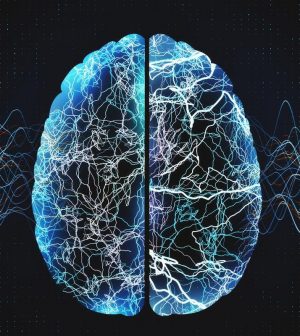- Could Your Grocery Store Meat Be Causing Recurring UTIs?
- Are You Making This Expensive Thermostat Error This Winter?
- Recognizing the Signs of Hypothyroidism
- 10 Strategies to Overcome Insomnia
- Could Artificial Sweeteners Be Aging the Brain Faster?
- Techniques for Soothing Your Nervous System
- Does the Water in Your House Smell Funny? Here’s Why
- Can a Daily Dose of Apple Cider Vinegar Actually Aid Weight Loss?
- 6 Health Beverages That Can Actually Spike Your Blood Sugar
- Treatment Options for Social Anxiety Disorder
Initial Symptoms of MS Could Guide Prognosis, Treatment

Two key symptoms that can arise soon after a diagnosis of multiple sclerosis (MS) could predict how swiftly the illness will progress and suggest best treatment options, new research shows.
The two symptoms — blurred vision and sphincter dysfunction of the bladder and/or bowel — can arise in some, but not all, patients early in the disease.
When they do surface so quickly, patients “may be at higher risk for developing more severe disability over time,” said study lead author Dr. João Pedro Gonçalves, from the Federal University of Bahia, in Brazil.
“This information could be crucial for healthcare providers in determining initial treatment strategies and monitoring protocols,” he explained.
Gonçalves’ team published its findings Sept. 24 in the journal Brain Medicine.
The new study involved 195 MS patients whose initial symptoms were noted by the researchers. Their later functional outcome was also tracked using the Expanded Disability Status Scale (EDSS), a widely recognized tool for measuring disability in MS patients.
Patients with blurry vision at the outset of their diagnosis were 20% more likely to have worse longer-term functional outcomes versus those without this initial symptom, the researchers found.
Meanwhile, patients with sphincter dysfunction early in their illness were 24.5% more prone to developing severe disability later on, the Brazilian team said.
Two other early onset symptoms — acute paralysis and hypoesthesia (numbness) — were not linked to worse outcomes, although that runs counter to findings from some prior studies, Gonçalves’ team noted.
It’s not clear why blurred vision and sphincter dysfunction might herald more aggressive disease. One theory is that these symptoms might reflect more damage to the central nervous system, the researchers said.
More research needs to be done to determine how the new findings might influence treatment decisions, Gonçalves said.
“These findings could potentially reshape how we approach initial MS treatment decisions,” Gonçalves said in a journal news release. “By identifying patients at higher risk for severe disability early on, we may be able to intervene more aggressively and potentially alter the disease course.”
More information
Find out more about multiple sclerosis at the National Multiple Sclerosis Society.
SOURCE: Genomic Press, news release, Sept. 24, 2024
Source: HealthDay
Copyright © 2026 HealthDay. All rights reserved.










